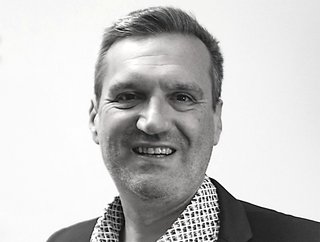Lifetime of Achievement: Sven Markert

Sven Markert has served Siemens with distinction for almost a quarter of a century.
Siemens is a German multinational conglomerate and is the largest industrial manufacturing company in Europe.
The company specialises in intelligent infrastructure for buildings and decentralised energy systems, on automation and digitalisation in the process and manufacturing industries, and on smart mobility solutions for rail and road transport.
Markert’s first role with the company was as a consultant, when he was a lead on various projects for internal Siemens divisions.
He worked his way up to Senior VP Supply Chain Logistics, a position he held for a decade. Based in Switzerland and Germany, he was responsible for supply chain – planning, sourcing, delivering, returning and enabling processes – in the Solution, Service & Product areas of the business.
He was direct lead for more than 1,500 employees in Switzerland, Germany and Asia, and had responsibility for a budget of €400mn. Various success stories building resilient supply chains.
In his current role, he is responsible for the supply chain management of logistics, heading up more than 4,000 employees across multiple business units. He also manages and develops shared-service operations for customer services and logistics, as well as overseeing the digitalisation of SCM, including benchmark oriented processes.
“My belief is that the supply chain of the future must not only be robust but must also focus on the environment and the customer,” says Markert. “This requires smart, digitally supported decisions, especially in our dynamic world.
He adds: “The digital transformation helps us to do more with less, being more sustainable in our actions. This drives and motivates me.
“I aim for learning, and strive to improve every day, to have a positive impact – on customers, stakeholders, people, our environment and myself.”
Markert says he is “deeply rooted” in supply chain management, operations and finance, and declares his “passion for leadership”.
“Inspiring people to follow a vision, and seeing people grow and develop makes me happy,” he says, adding: “During my professional journey I have had the pleasure to try different things – from start-ups to global enterprises, and from managing an individual contribution to leading thousands of people. This has shaped me and it is not the end – it is just the beginning.”
Sustainability is also core to Markert’s work at Siemens.
“At Siemens, the topic of sustainability has been relevant since the 1970s,” he says. “But since then we’ve significantly expanded our approach.
“Today we’re working with a holistic framework that we defined ourselves and are taking our commitment to a new level,” says Markert.
“For us, there are many projects that are relevant in terms of sustainability – from small pilot projects in e-mobility through to intelligent transport control, and the entire planning of the supply chain. Here, the most important lever is overall network planning.”
Siemens currently has an estimated 500,000 products in the field, each with a unique product footprints – which Markert says means “we cannot rely on normal evolution to achieve our set goals”.
He adds: “All stakeholders and business units are currently subject to continuous change, and this also applies to supply chains and logistics. In the future, sustainability will be an equally important issue alongside those of costs, liquidity and performance.”
Markert feels business must act now on sustainability.
“Just do it,” he says. “Don't get stuck with discussions and analyses. These can also be smaller projects within a defined framework, for example from product development. But of course, there are also examples of this kind in logistics, such as the switch to electric vehicles with guaranteed green electricity.”
- PostNL’s bid to make its Transport Network more SustainableSustainability
- GXO: Helping Virgin Media O2 cut down on Single-Use PlasticsSustainability
- Supplier Collaboration Key to Johnson & Johnson Climate PushSustainability
- Top 10: Women in Supply Chain in the Middle East and AfricaOperations







